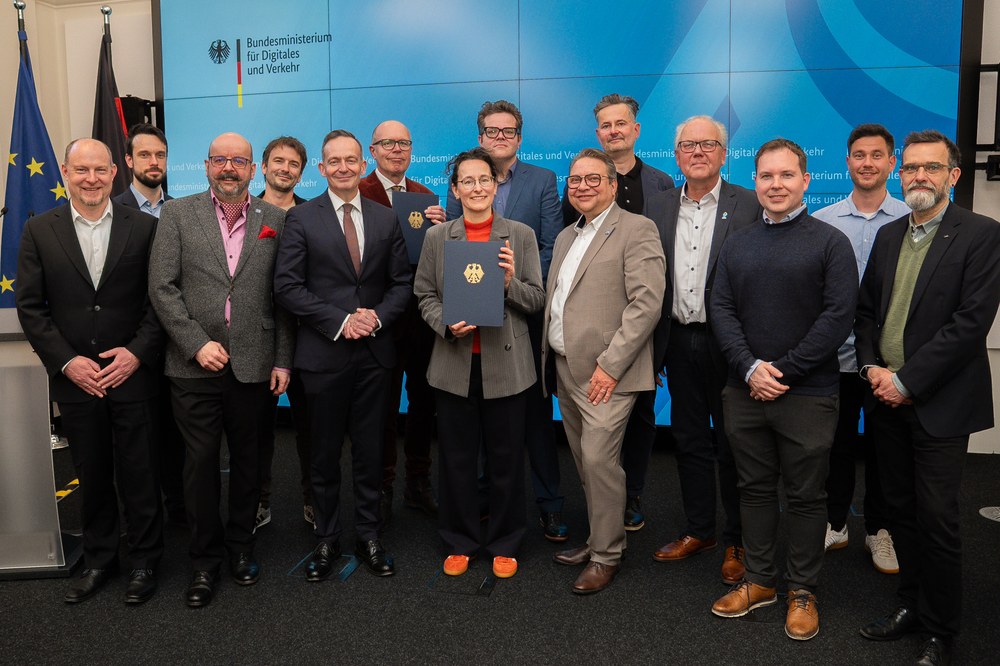Important step in the AIAMO project: Leipzig and Landau in the Palatinate become model cities for AI-supported traffic control
Leipzig and Landau as pilot regions of the AI mobility project AIAMO
The aim of AIAMO is to optimise traffic, network public transport and protect the environment - also transferable to smaller cities.
Focal points: Traffic control, mobility apps, environmental data utilisation.
The Federal Ministry for Digital and Transport Affairs (BMDV) today presented the cities of Leipzig and Landau in der Pfalz as the first pilot regions in the AIAMO - Artificial Intelligence And MObility research project, in which the German Aerospace Centre (DLR) is also involved.
The focus is on the development and testing of AI-supported solutions for linking mobility data, optimising traffic flows, better organisation of commuter traffic and more efficient networking of local public transport. The special feature: the project results should be transferable to small and medium-sized municipalities.
Both pilot cities therefore represent different challenges and offer ideal test environments for innovative approaches - Leipzig as an expanding city with over 600,000 inhabitants and Landau in der Pfalz as a medium-sized city with around 37,000 commuters a day.
Leipzig and Landau exemplify the diversity of transport challenges in Germany. The use of AI opens up new opportunities in both cities to plan transport more efficiently, avoid traffic jams and increase the utilisation of public transport. This also helps to protect the environment. Leipzig and Landau are pioneers with their openness to new, creative approaches in transport planning. Many other local authorities can benefit from their experience.
Markus Wartha, consortium leader of AIAMO: "With AIAMO, we are creating a basis for AI data that makes it possible to implement modern mobility management solutions across the board. Our approach promotes cooperation between cities, research institutions and companies in order to jointly shape the mobility of the future."
AIAMO uses AI to systematically analyse and link mobility data and develop an AI database for innovative applications, such as:
- Intelligent traffic guidance systems: These react dynamically to current traffic conditions in order to avoid traffic jams and improve traffic flow.
- Mobility apps: They integrate offers from different modes of transport such as public transport, sharing services or cycling and offer door-to-door route planning.
- Traffic forecasts: AI can make more precise predictions in order to manage traffic flows proactively.
- Environmental data monitoring networks: The collection and processing of data on air quality and emissions support climate-friendly decisions.
As part of the project, Leipzig will set up an environmental data monitoring network with 50 stations, while Landau will use existing sensor technology along central traffic axes to test innovative control approaches.
DLR is conducting research in Leipzig together with the Helmholtz Centre for Environmental Research (UFZ) on environmentally sensitive traffic management. The aim is to efficiently control traffic in environmentally sensitive zones and take targeted measures if air quality limits are exceeded. This includes, for example, adapting traffic light circuits, controlling the flow of traffic and promoting environmentally friendly means of transport, in particular strengthening local public transport.
The AIAMO project - which stands for "Artifical Intelligence And MObility" - is part of the German government's AI strategy and is being supported by the BMDV with a total of 16.7 million euros. It aims to use mobility data efficiently in order to optimise traffic management in cities and rural regions, minimise CO2 emissions and at the same time improve the quality of life of citizens.
Further information at https://aiamo.de

